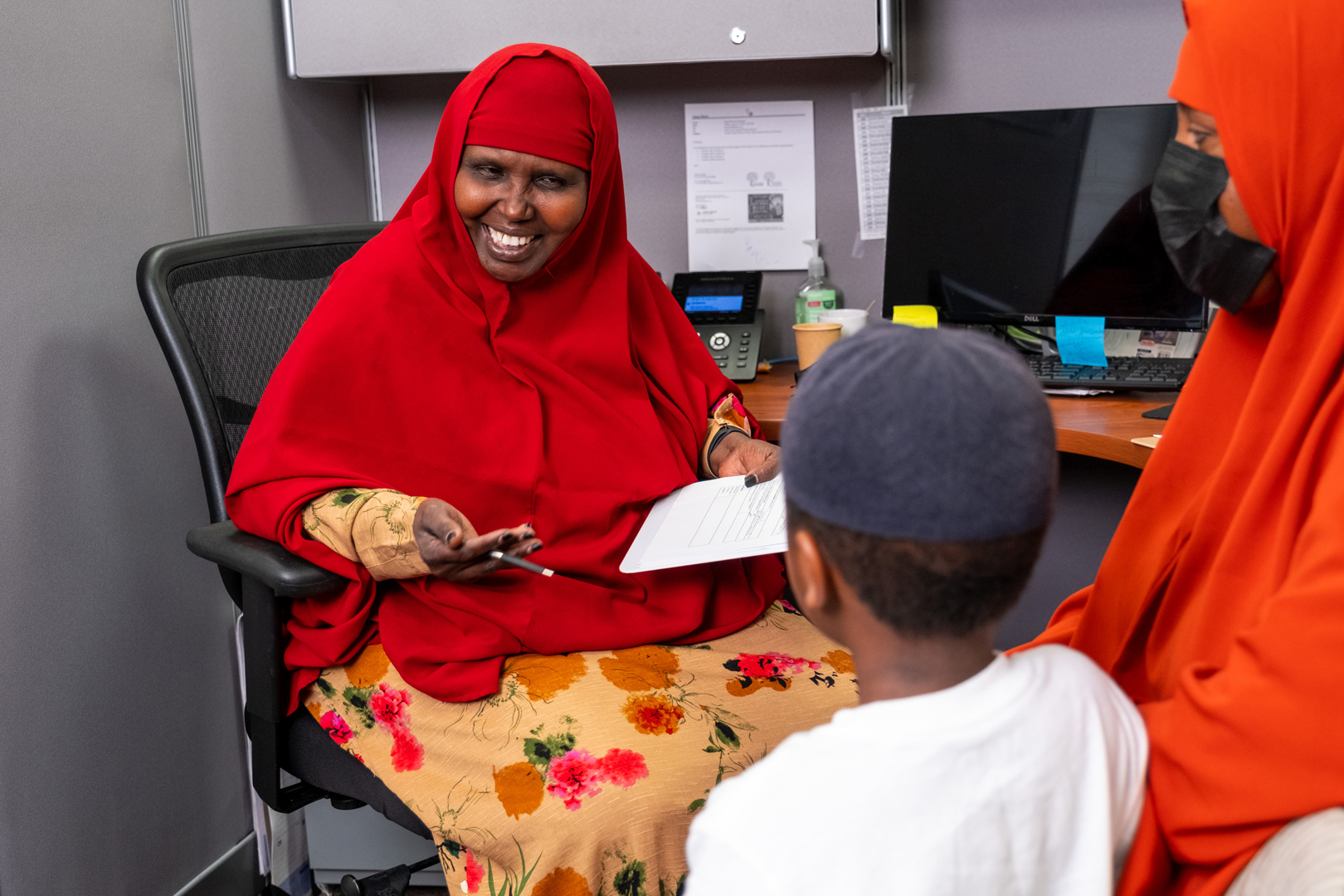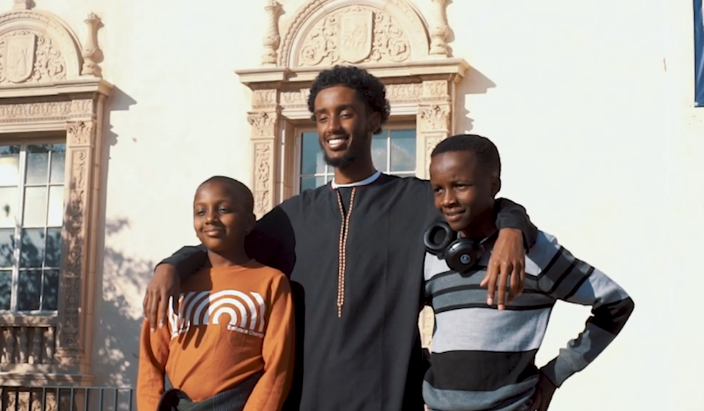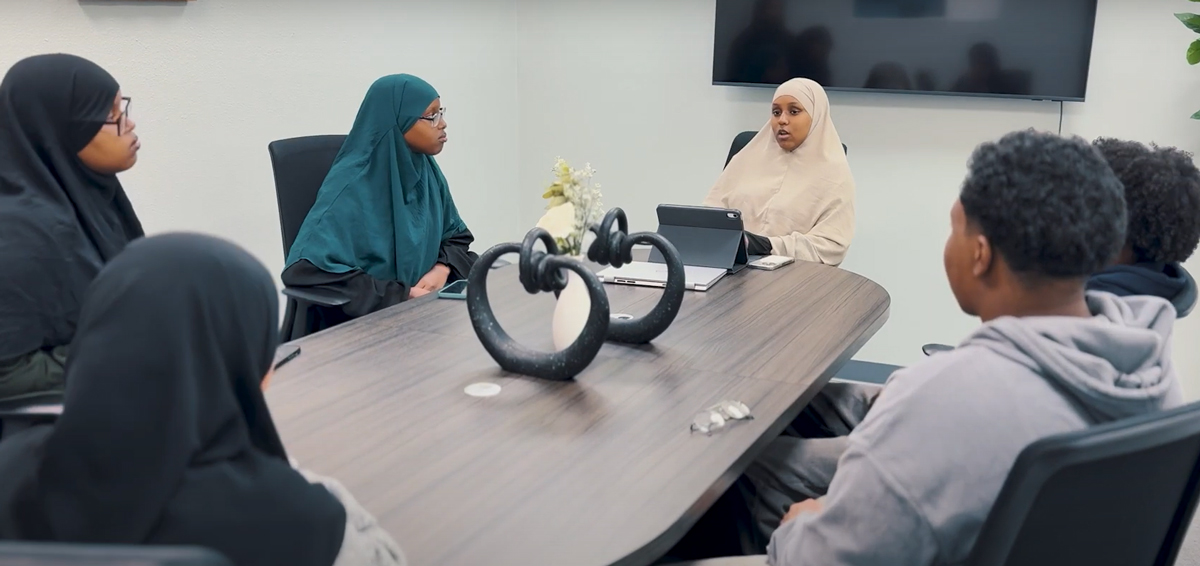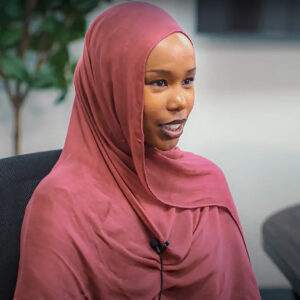Stop the Hate
Somali Family Service: Promoting Wellness and Voice Among San Diego’s Immigrant and Refugee Communities

In the early 2000s, the Somali community in San Diego was facing a crisis: Somali youth were being heavily recruited into local gangs amid an uptick in regional gang violence. Somali families and community leaders — many of whom were recent arrivals to the U.S. fleeing war in their homeland — recognized that isolation and lack of opportunity were driving their youth toward gang life. They established Somali Family Service of San Diego (SFS) in response.
Founded and staffed by immigrants and refugees with personal experience accessing services and resources in San Diego, SFS began work in City Heights, developing a range of resources and positive opportunities that were both culturally and linguistically attuned to the needs of Somali youth. Their outreach and support efforts were a gamechanger for many, creating pathways to better health, educational achievement, and economic self-sufficiency.
Fast forward to today, and Somali Family Service has greatly expanded its reach and programs, providing direct services to 1,000-plus clients and reaching 25,000 individuals annually. SFS team members now work across San Diego County serving community members representing 25 different ethnic populations hailing from Africa, the Middle East, Afghanistan, the Caribbean, and beyond. In addition to working with vulnerable youth, the organization now serves children, teens, adults, and seniors. With more than 15 languages spoken among the staff (many of whom are trained community health workers), SFS is uniquely positioned to help community members take on hate. Here’s why:
SFS service populations hail from many countries, speak many different languages, and have settled in San Diego for many different reasons. But there are common threads among them that make the organization’s model of wraparound, health-focused, and culturally appropriate services particularly impactful. Many clients are relatively new arrivals to the United States, including refugees fleeing violence and conditions of poverty. Language barriers can create challenges around education and employment. A strong focus on family, faith, and cultural connections contributes to tightknit communities. And when they find themselves the target of harassment or hate crimes, they often struggle to engage with educational, health, and legal institutions meant to protect them.
A Culturally Sensitive, Whole-Family Health Approach
SFS’s deep understanding of the communities with whom they work is the not-so-secret ingredient in their programs’ effectiveness, and why wrap-around services are so critical. The organization’s approach has proven successful because it recognizes that hate crimes cause harm on multiple levels and therefore must be addressed on multiple levels. The organization now embraces a whole-family health approach to their work.
“If a hate crime occurs, it impacts multiple generations in a family,” shared SFS Youth Program Manager Rachel Evans. “It takes the whole family to ensure their wellbeing is considered.”

SFS often works with multiple generations within a family to help them address the issue, support one another, and navigate interactions with schools and law enforcement. The staff also prioritizes a health and wellness approach, supporting clients who have experienced hate in various forms by helping them address the mental and physical health effects of their experiences. “We use a model of destigmatizing,” shared Evans. “Getting people comfortable enough to speak up outside their immediate circles about hate crimes. Getting people to seek assistance or counseling.”
The evolution of Somali Family Service — from its origins in youth services to its current role as a provider of culturally relevant, multigenerational, wraparound programs — is almost entirely due to its community-driven nature. Now, SFS is taking its anti-hate work to the next level: activating the community to understand their rights and to proactively address the root causes of the hate they are experiencing.
Evans notes, “It’s not about just the crime itself; it’s about recognizing the clues before it happens and making sure people know their legal rights.”
SFS services have enabled many immigrant and refugee community members to become their own most effective advocates. This was especially true for Amina (name changed for anonymity). As a young participant in SFS’s Stop the Hate programming, Amina shares that she “felt alone and unsure of how to respond to the harassment I faced” for wearing her hijab. “The program gave me more than just information; it gave me confidence. I learned about my rights, how to report hate crimes, and where to find mental health support. What made the biggest difference was knowing that there’s a whole network of people and resources dedicated to protecting and uplifting our community. It was the first time I truly felt seen and supported.”
Youth Take a Leading Role in Changing the Narrative

Now, SFS is working to change the narrative around the communities it serves. “Dehumanization leads up to hate crimes,” states Evans. “When people don’t see other people as equal in value, it puts them on the pathway to hate crimes.”
With decades of service to local youth, the SFS team has developed a keen understanding of the influence young people play in changing the narrative within and beyond their immediate circles. Mustafa Sahid, director of operations at SFS, has observed how SFS youth leadership has made a profound impact in the community.
“The role of youth leaders in combating hate is really to start with a conversation,” notes Sahid. “I think the youth are really on the front line. A lot of youth are on campuses, whether it’s through K through 12, or on college campuses. When they begin to have those conversations at an early age, the impact that they can have on their peers and also the society as a whole can last a lifetime.”
This is especially true in regard to a new documentary SFS has released in collaboration with youth ambassadors and community leaders. Voice for Peace: A Call for Change tells the stories of San Diego’s refugee and immigrant community members and the impact of hate crimes in their lives. With the active involvement of SFS’s youth ambassadors in the development of the film, Voice for Peace offers a candid and relatable look into real lives affected by hate, and a compelling call to action for a safer, more inclusive world.

In the film, a young woman named Huda reflects on a core message for the audience, and anyone seeking services through SFS: “If anyone is experiencing hate crimes or issues where they feel like cannot speak up, just know that you have people there for you.”
Schools, community-based organizations and other community sites can contact SFS about hosting a screening of Voice for Peace. Watch the trailer here and learn more about the work of Somali Family Service to stop the hate in communities across San Diego here: https://www.somalifamilyservice.org/.